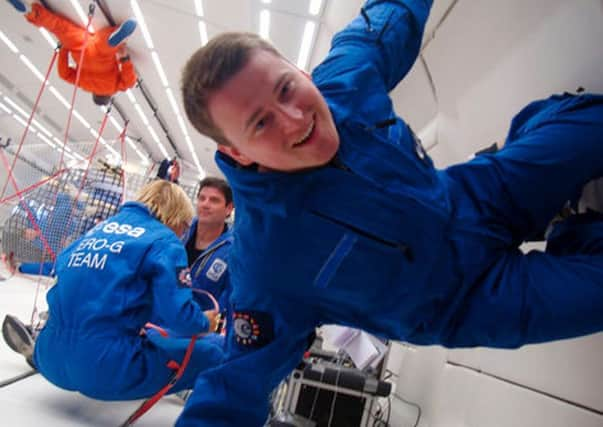Edinburgh scientist tells of life on a simulated Mars base


Not a single personal insult was uttered by any member of the crew during the whole of the “mission” that ended on September 17, claimed astrobiologist Sam Payler, 28, a Phd student at the University of Edinburgh.
Being being without the internet created more difficulty than social conflict, since it meant problems took days instead of minutes to solve.
Advertisement
Hide AdAdvertisement
Hide AdSpeaking from Hawaii, where the four men and two women had lived in a 1,200 square foot dome situated on a barren active volcano, Mr Payler said: “I was very lucky to have a great crew. No isolated group can be immune to any arguments, but everyone did an amazing job of working through any issues we had.
“We spent a lot of time talking about how to avoid conflict. Incredibly, not once did anyone use a personal insult.
“The group was very carefully selected to try and get a group that would work well together and get along, and we seem to have achieved that.”
The Hi-Seas (Hawaii Space Exploration Analog and Simulation) mission was the fifth in a series of similar experiments funded by the American space agency Nasa. The aim was to identify and overcome psychological and social problems that might emerge on long-haul space missions.
During their time together on an 8,200ft high rocky plain below the summit of Mauno Loa, the crew members lived and worked as if they were on Mars, carrying out maintenance, conducting scientific studies and exercising.
They relied on “shelf-stable” food and were denied all fresh fruit, meat or vegetables. Space suits had to be worn on excursions outside the dome, which were carried out in teams.
Mr Payler said: “Our days were packed with the types of task work which helped us not go stir crazy.
“Keeping focused and busy is key to keeping physiological health up. We also worked out a lot (six times a week for me) to keep spirits high and help us deal with the physical EVA work (going out on the volcano in space suits).
Advertisement
Hide AdAdvertisement
Hide Ad“The habitat never felt small to me, partly because I got on so well with my crew mates.
“We always found fun things to do such as watch movies together or play board games.”
He said he especially missed “fresh fruit, juice, ice cream, steak, fresh seafood and beer”.
Mr Payler added: “The morning we ‘landed’ we were brought fresh fruit, doughnuts and a few items a few people had requested from McDonalds (Sausage and Egg McMuffins).
“Later, the mission support folks barbecued us some steak and prawns which was amazing. We also went to a bar for some local Hawaiian beer and cocktails.”
Browsing the internet was impossible because of a 20 minute communication delay intended to mimic the time it takes for radio signals to travel between Earth and Mars.